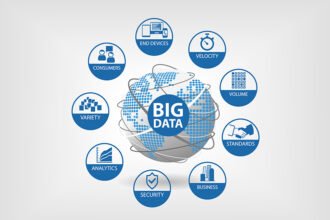It used to be that a doctor was a doctor for the most part. Even a century ago, unless you lived in a large city, people likely had a town doctor who handled most every type of ailment and guided most any type of treatment. Given the limited medical knowledge and lack of sophisticated treatment options during this time, these generalists could often provide a level of care that was comparable to the best available. Today, that is no longer true in medicine and a similar trend is playing out in analytics.
The Proliferation of Specialists
Today, the medical profession still has general practitioners who are usually our first line of defense. However, there are also specialists focused on a wide range of specialties within medicine. Radiologists, surgeons, orthopedists, and more are among those we interact with on a regular basis. Even within these specialties, there are sub-specialties. For example, brain surgeons and heart surgeons. While all medical professionals go through the same basic training, many then focus on training in a specific area.
When I started in analytics just a few decades ago, most of us were similar to the town doctor. For the most part, we were generalists who would apply our skills to any type of problem. Through experience, we might become an expert in one or more areas. But, many analytics were new enough and companies had such a limited pool of analytic talent that we were mostly hired and managed as generalists. And like those old town doctors, we were able to deliver analytics that were as good as any others because the data and technologies just weren’t available to do anything too fancy.
These days, we are seeing a proliferation of specialties within analytics based on certain methodologies, industries, and/or types of problems. We have experts in predictive models, experts in deep learning, experts in text analytics, experts in graph/network analytics, and more. In many cases, the underlying mathematical and statistical educational and experiential foundation of these experts is similar. But, much like doctors, people have chosen to specialize and focus on certain areas that are of specific interest to them. This is possible because organizations have enough demand for analytics, so it is possible to have a career while being specialized.
Building Your Team of Specialists
Just as we still have general medical practitioners, organizations still require analytic generalists. Generalists can help identify opportunities, develop a cohesive portfolio of capabilities, and manage the development of analytic processes. However, any given problem may require a referral to a specialist. For example, a generalist can identify the need to understand customer sentiment from customer service comments. But, it is likely best to allow a text analytics expert to handle the gory details of executing the analytics. This is much like how a general medical practitioner can identify that I have a certain type of injury or ailment but then refers me to a specialist to get the proper treatment.
As with medicine, there are a wide range of analytic specialties and any given organization won’t need them all. For example, manufacturing and logistics organizations often have high need for optimization algorithm expertise while other industries have different needs. Each organization needs to build its team based on the demands it has. Don’t hire specialists just because they exist. Hire them if you need their expertise.
Some specialties very easily transfer across divisions or industries and others do not. For example, many common uses of text analytics have the same general input data (i.e. customer commentary or internal communications) being analyzed for the same general purposes (i.e. sentiment analysis or compliance analytics). Someone who does this type of analysis in one setting should be able to transfer to another pretty easily since the analytic requirements are so consistent. Other specialties, like revenue management, tend to be centered in specific industries such as travel companies.
Developing Your Own Specialty (Or Not)
If you are an analytic professional, you’ll also have to make some choices just as doctors do today. Do you want to be a generalist or do you want to specialize in some specific areas? It isn’t an irreversible decision. However, it can take a lot of time and energy to become an expert in things like deep learning or text analytics. And, once you’ve focused on a given area for a while, employers will be reluctant to use you for other purposes.
In my own organization, I view myself a bit like a large medical practice. I absolutely need some generalists. But, I am also building out a team that includes a variety of specialists. Just like it is nice to be able to go to one medical facility and know that it can meet most of your needs regardless of what ails you, I want our practice to have the skills required to address most anything our clients require. In many cases, demand has driven the action to hire a new specialist. In others, we’ve decided to be an early entrant as a way to differentiate. In any case, the planning, hiring, and skills development protocols I follow today for my organization are much different than they were earlier in my career.
I recommend that you begin looking at your own analytics team as a medical practice. What specialists do you need? How will they enhance what the others offer? How many generalists are needed to stitch together the right analytics across multiple specialties in order to get the best answers? By recognizing the need to look at your analytics organization in this different way, it will help you adapt to today’s new realities.
Originally published by the International Institute for Analytics.








